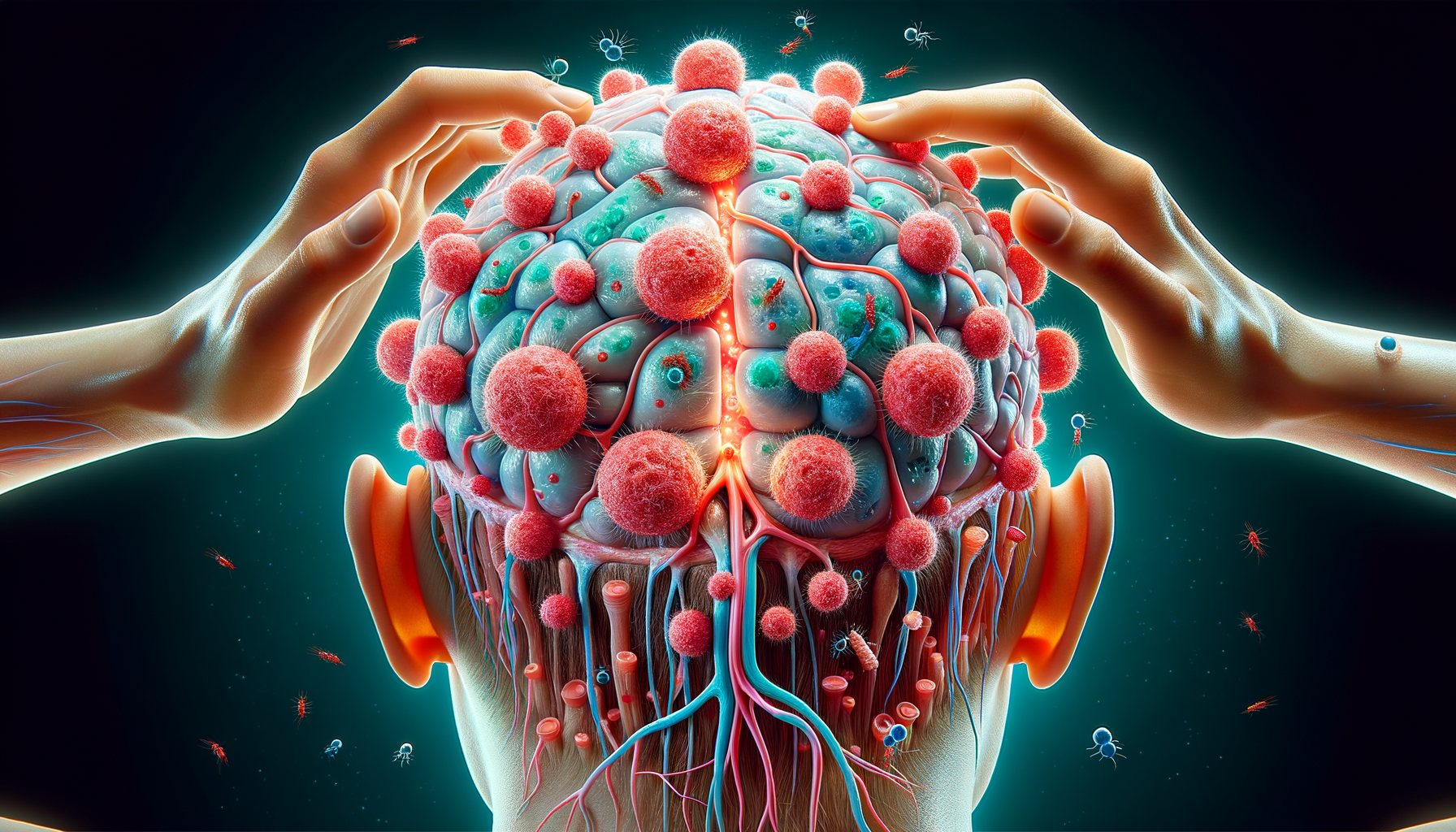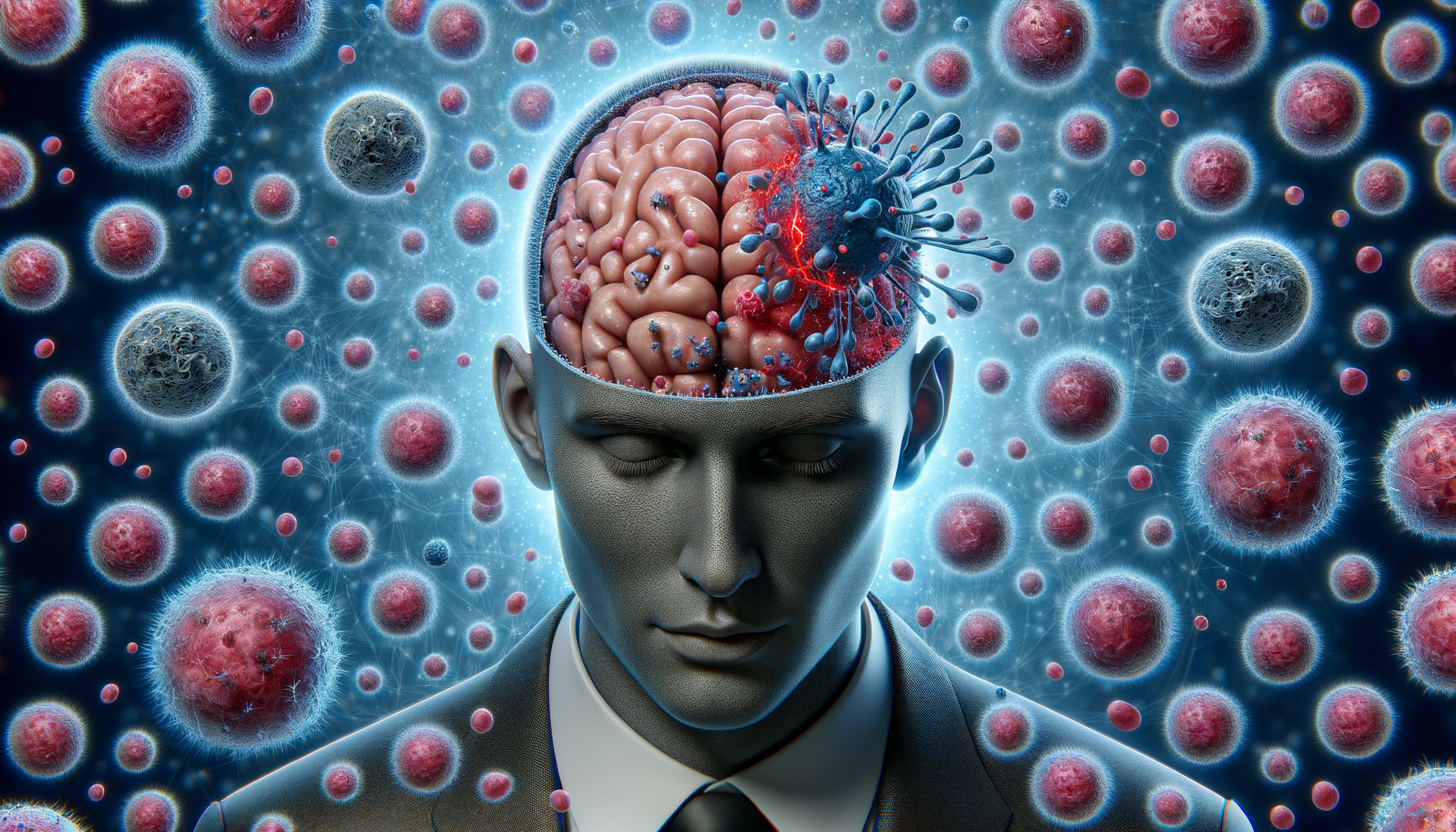Understanding Autoimmune Disorders Affecting the Scalp
Autoimmune disorders occur when the body’s immune system mistakenly attacks its own tissues. When this occurs in the scalp, it can lead to conditions like lupus, scalp psoriasis, and alopecia areata. These conditions often present symptoms that mimic more common scalp issues, making diagnosis challenging. Understanding the underlying mechanisms of these disorders is crucial for effective management and treatment.
Lupus is a systemic autoimmune disease that can affect various parts of the body, including the scalp. It often results in inflammation and can lead to hair loss. Scalp psoriasis, on the other hand, is characterized by red, itchy patches and can also cause hair loss due to the scratching and inflammation of the scalp. Alopecia areata is another autoimmune condition that specifically targets hair follicles, leading to patchy hair loss.
These conditions are often confused with dandruff or other common scalp issues, but they require distinct approaches for management. Identifying these disorders early can significantly improve treatment outcomes and quality of life for those affected.
Common Symptoms and Diagnosis
Recognizing the symptoms of autoimmune disorders affecting the scalp is the first step towards diagnosis and treatment. Common symptoms include:
- Red, scaly patches on the scalp
- Itching and burning sensations
- Patchy hair loss
- Thinning hair
These symptoms can overlap with other scalp conditions, making it essential for individuals to seek professional medical advice for an accurate diagnosis. Dermatologists often perform a thorough examination of the scalp and may take a biopsy to confirm the presence of an autoimmune disorder.
Blood tests can also be useful in diagnosing systemic conditions like lupus. These tests look for specific antibodies that indicate an autoimmune response. Early and accurate diagnosis is crucial for managing symptoms and preventing further complications.
Impact on Quality of Life
Living with an autoimmune disorder affecting the scalp can significantly impact an individual’s quality of life. The visible nature of these conditions can lead to self-consciousness and affect social interactions. Hair loss, in particular, can be distressing and lead to emotional and psychological challenges.
Individuals may experience anxiety and depression as a result of their condition. It is important for healthcare providers to address these aspects of the disorder and provide support alongside medical treatment. Support groups and counseling can be beneficial for individuals coping with the emotional impact of their condition.
Furthermore, the chronic nature of these disorders means that individuals must manage them over the long term, which can be physically and emotionally taxing. Developing a comprehensive management plan with healthcare professionals can help improve overall well-being and quality of life.
Management and Treatment Options
Treatment for autoimmune disorders affecting the scalp aims to manage symptoms and prevent further hair loss. Options vary depending on the specific condition and its severity. Common treatments include:
- Topical corticosteroids to reduce inflammation
- Immunosuppressive medications for severe cases
- Light therapy for scalp psoriasis
- Minoxidil to promote hair growth in alopecia areata
In addition to medical treatments, lifestyle changes can also play a role in managing symptoms. Reducing stress, maintaining a balanced diet, and avoiding triggers can help minimize flare-ups and improve overall health.
Patients should work closely with their healthcare providers to develop a personalized treatment plan that addresses their specific needs and concerns. Regular follow-up appointments are essential for monitoring progress and making necessary adjustments to the treatment plan.
Future Directions and Research
Research into autoimmune disorders affecting the scalp is ongoing, with the aim of developing more effective treatments and understanding the underlying causes of these conditions. Advances in genetics and immunology are providing new insights into how these disorders develop and progress.
Scientists are exploring the role of genetic predisposition and environmental factors in the development of autoimmune disorders. Understanding these factors could lead to the development of targeted therapies that address the root causes of these conditions.
Additionally, research into the psychological impact of autoimmune disorders is highlighting the need for holistic approaches to treatment that address both physical and emotional well-being. As research progresses, it is hoped that new treatments will emerge that offer better outcomes for individuals affected by these challenging conditions.



Leave a Reply